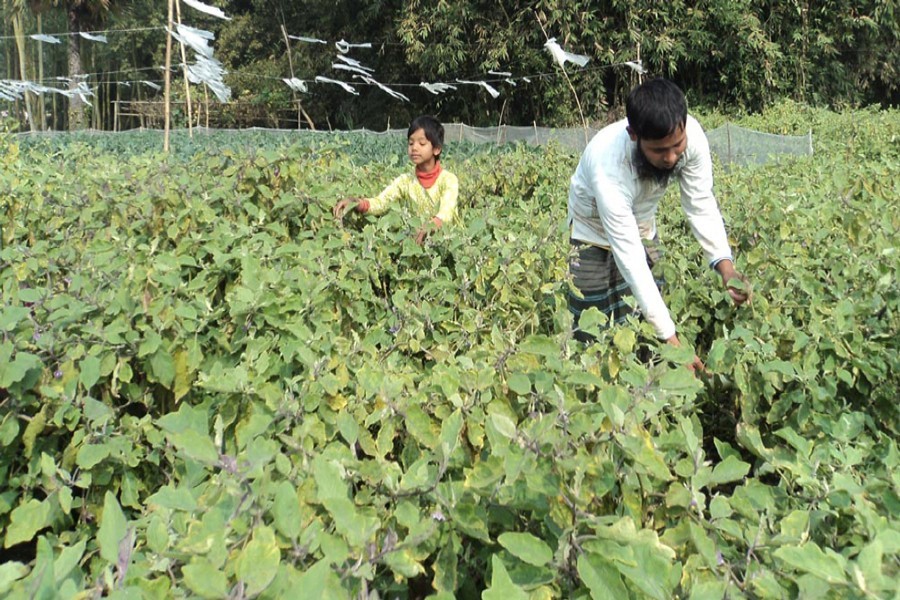Boosting agricultural production and productivity and farming high-value crops of export quality are seen as urgent to cushion possible external shocks to Bangladesh's export trade in the post-LDC-graduation era.
To this end, researchers recommend for the government to take steps to make a diversified crop-production plan and intensify the commercialization of agriculture, including its sub-sectors.
The recommendation comes from Bangladesh Agriculture Research Council (BARC) in a report submitted to the government, at a time when Bangladesh has fulfilled all set criteria for graduation from the world's poor-country club-the group of least-developed countries or LDCs, and preparations are set in motion on how to go around on the global market in post-graduation era.
It puts special focus on adopting know-how to produce export-oriented safe and quality food items through commercialized agriculture with the latest means.
The government agency prepared the report through research headed by an additional secretary (policy), industries ministry, under the intellectual property rights (IPR) subcommittee on the graduation of Bangladesh from LDC to DC (developing country).
When contacted, a senior official of the industries ministry involved with the process declined to make comment in this regard.
"Required investment should be increased in agricultural research, extension, and human-resource development to facilitate technology innovation and dissemination," the report reads.
The institutional capacity of the state agencies involved with agricultural research and development should be enhanced.
Necessary planning and measures should be taken for utilization of the blue economy and to strengthen natural resource management activities.
A necessary move should be adopted for establishing modem and export-oriented agro-processing industries.
The report also suggests formulating an export-friendly trade policy by bringing about required changes in export-import policy.
For market expansion, the country should go for signing the free-trade agreement (FTA) with the developed and developing countries/regions.
The BARC report has recommended preparing time-bound (short, medium, and long-term) planning to overcome possible challenges after graduation from LDC status.
It also calls for conducting a study on the existing international market access, the benefits to be lost through graduation, and possible trade opportunities to be opened up thereby.
The report forecasts that country's export trade is likely to face multiple challenges, including losing duty-free and quota-free, and reduced benefit facilities in the post-graduation period.
Farm-mechanization process, production of safe and quality food, agro-processing and value addition to agro-products and the overall productivity may also be hampered after graduation because of withdrawal of some trade benefits as LDC, reads the report.
The BARC, under the Ministry of Agriculture, cautions that the export of both agro- and non-agro products will face more competition on the international market.
There will be a negative impact on pharmaceuticals and chemical products because of the effectiveness of patent provisions of trade-related intellectual property rights (TRIPS) agreement after graduation.
This will result in an increase in pesticide and chemical fertilizers, thereby affecting the overall agriculture production, the report says, adding that Bangladesh will get the transition period till 2033 to prepare itself for policy and technological homework.
Overall export-shipment of agro-products may face a negative effect for providing subsidy and cash assistance on such export goods, it also mentioned.
After graduation, Bangladesh will have less or no opportunity to avail of different facilities including grant/soft loan/ODA for short-and long-term agriculture research and development projects.
The agriculture sector has been one of the important drivers of growth and rural development, accounting for almost 14 per cent of the gross domestic product (GDP) and providing employment opportunities for more than 40 per cent of the country's workforce, the report noted.
Currently, Bangladesh has achieved self-sufficiency in food production along with the surplus production of rice and potato.
Besides crops, Bangladesh demonstrates higher growth in livestock and fisheries, particularly meat production and inland cultured fisheries.


